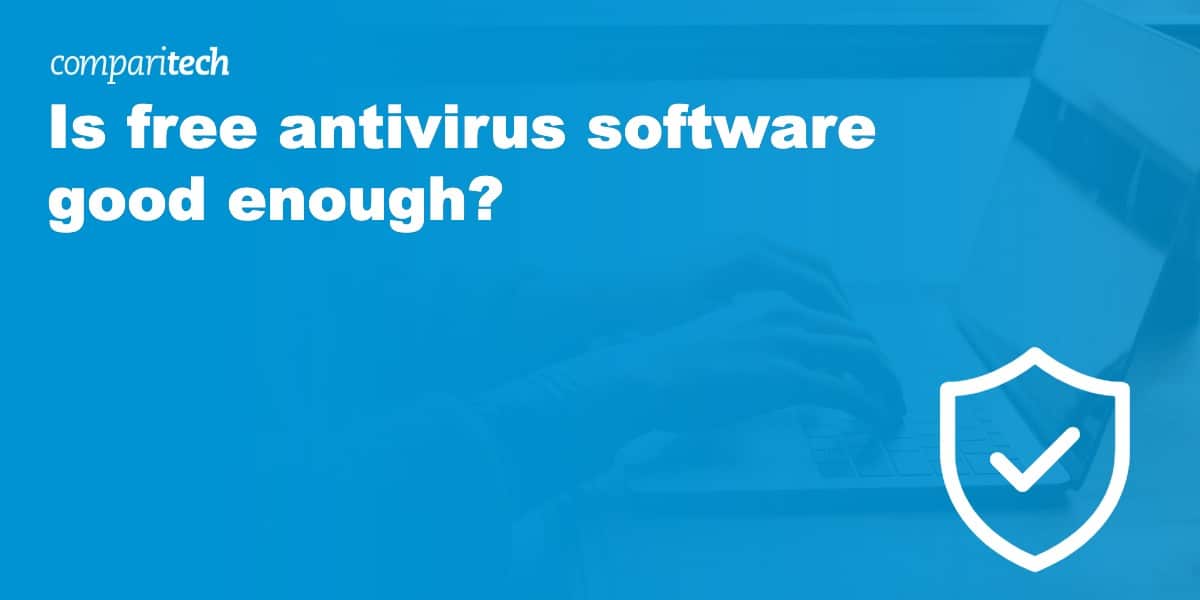It’s no secret that the market for antivirus solutions is pretty crowded, and making a choice can feel like navigating a maze. The dilemma often comes down to picking between a free or a premium antivirus service. While both have their merits, the right choice largely hinges on the individual asking the question.
Free vs paid antivirus
The age-old saying , “you get what you pay for,” once held true when discussing antivirus software. Free versions were notorious for bundling in bulky toolbars, confusing interfaces, and relentless upsells. However, the tides have shifted.
Free antivirus programs have evolved, now delivering user-friendly experiences, while their paid counterparts have ramped up with a plethora of features like password managers or parental controls. The deciding factor? Who’s behind the free antivirus? Big names often offer free solutions that stand toe-to-toe with some premium services, making them a viable option for those on a budget or with non-critical use cases.
Yet, there’s a catch. How is the provider keeping the lights on if you’re not paying? Understanding the trade-off is essential – you might be the product, either through upsells or data collection.
Support is another consideration. Free antivirus solutions may lack the customer support infrastructure, which could be a roadblock if you’re not tech-savvy. On the flip side, open-source software, often free, provides transparency, allowing anyone to review or modify the code. However, this might appeal more to tech enthusiasts than the average user.
Ease of use has improved across the board, but some free programs may still present a learning curve for non-technical users, making the seamless security software experience a bit bumpy.
Benefits of paid antivirus protection
When you invest in a paid antivirus solution, you’re buying more than just software; you’re securing a level of accountability. It’s reasonable to expect prompt support, assistance with installation issues, and access to expert advice whenever needed. This level of service might be scarce in the free antivirus territory.
Moreover, paid antivirus services generally come stacked with features like email scanning, integrated firewalls, anti-spyware, and more. These companies are fully aware of the free alternatives nipping at their heels and continuously innovate to stay ahead.
In contrast, free programs might not have the financial muscle to add new features or may serve as a teaser to entice you towards the paid version from the same developer.
The evolving threat landscape
The digital domain has witnessed a surge in sophisticated cyber threats in the past decade. Ransomware attacks, where malicious software encrypts a user’s data and demands a ransom for decryption keys, have skyrocketed. Phishing scams have become more refined, and zero-day exploits, vulnerabilities unknown to the vendor, are a lingering menace.
Antivirus solutions, both free and paid, have had to up their game. Modern antivirus software, like Avast Antivirus and Bitdefender Antivirus, offer features beyond mere virus detection. They provide real-time protection, phishing prevention, and sometimes even a basic firewall. Paid versions like Norton 360 or McAfee Total Protection further ramp up security with advanced firewalls, VPNs, and identity theft protection tools.
Conclusion
The decision between free and paid antivirus solutions isn’t black and white. Free offerings from reputable providers like Avast, AVG, and Bitdefender can provide protection for general users. However, investing in a paid solution like Norton or McAfee might be worth the extra dollars for those with heightened security needs or a penchant for premium support and additional features.
It boils down to understanding your security needs, the level of support you require, and the value you place on additional features like VPNs and identity theft protection. In a world where cyber threats are continually evolving, having a reliable antivirus solution is not a luxury but a necessity.
Do I need antivirus for my Mac?
Contrary to belief, macOS systems are vulnerable to cyber threats like their Windows counterparts. In short, while Macs have a level of antivirus protection, installing a third-party Mac antivirus is recommended to tackle more sophisticated threats.
Is Windows defender enough?
Windows users have the added benefit of built-in malware protection from Windows Defender. Generally, the protection provided by Microsoft’s integrated antivirus is excellent, but it’s helpful to install an extra layer of antivirus (even if it’s free) to shield your device from emerging threats.



There’s no doubt of using free version antivirus for business / company uses.
The considerations of using free version is primarily for home users, students and especially for undecided. The trend of both versions are up-selling by packaging the product into the BASIC core (virus, spyware scan), with multiple levels of ADVANCE features (Firewall, malware detect & removal etc.) for pricing from free, low, med, high costs.
Free versions constantly annoy users to purchase the license by alerting or some products even create process slowing down your PC until take actions. The paid version seems the way to go, but the nasty things are most of the products STILL annoying users by pushing ads (NO kidding here!) or up-selling new features until you are buying top of the line optional features.
In my opinion as of today, this question is still moot, you paid what you get. Just don’t pick the one will slowing your PC performance or pushing ads over even you have already paid for the license.
Glad to see comments about Eset here; definitely the best antivirus software out there. I have it on all my devices and never have a problem. I have used free antivirus and installed it on devices that I have worked on, but I always recommend a paid for product for more or better protection.
I do think that products like McAfee and Norton put people off of paid antivirus because they can make the machine run as badly as having an infection.
Free is usually better than no protection, but it’s still down to the users to exercise care when handling files and browsing.
Thanks for the info, as I gave up on Norton, McAfee years ago. I have tried Avast they are OK.
In my opinion, paid versions are better than free. Freewares can sometimes contain malwares and is often limited. I am using ESET Antivirus like some of the users here. The paid version is superb!
Well, yes, a free antivirus is good enough if youre a user who is not accessing emails regularly, or not downloading a lot of stuff from torrent sites. But if you run a business system and connected to the internet for 24 hours, then you need a monitoring software that could guard and informs you of any suspicious activity in your system.I am using ESET Antivirus and so far it is performing great in my business system.